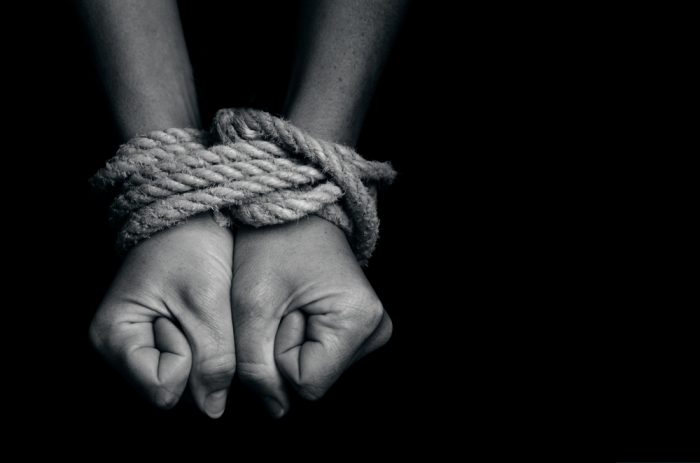In 2011, Live Action exposed Planned Parenthood’s systematic coverup of sex trafficking. Undercover videos revealed Planned Parenthood workers colluding with individuals posing as a pimp and prostitute, advising them on how to obtain birth control and abortions for underage sex slaves. A Planned Parenthood manager even told the pimp that a young girl could continue to turn a profit for the ring by being “that extra action walking by,” or by servicing customers from the “waist up” while she was recovering from an abortion:
The investigation added to legion evidence that Planned Parenthood’s business model is profit, no matter what — even if that means perpetuating violent abuses rooted in misogyny. Planned Parenthood operates under a pink facade of pro-woman sentiment, but when we contrasted Planned Parenthood’s unscrupulous betrayal of sex slaves with the policies and practices of life-affirming women’s clinics across the nation, the differences were staggering.
We asked four unaffiliated pro-life pregnancy centers and networks of women’s clinics in different states what protocol guides their actions if presented with a suspected victim of sex trafficking. Here’s what they told us.
In Wichita, medical staff at Choices Medical Clinic are trained to recognize signs of sex trafficking and abuse. Dr. Scott Stringfield, M.D., Medical Director at Choices Medical Clinic, told us that Wichita is a hub for sex trafficking and that the local hospital system, Via Christi, provides training where staff learn how to address potential abuse. Dr. Stringfield explained that proper authorities would be notified if warning signs present, and that a team of social workers, administrators, and physicans is in place to aid women who may be in danger or suffering from abuse.
“We want to leverage the supportive services we can to help get [the victims] free from where they’re at,” Dr. Stringer said. He explained that, as a nonprofit, the pro-life clinic is committed to doing everything in its power to help the woman.
However, abortion providers are often for-profit entities that are motivated to do anything they can to drive up business — even when that involves overlooking or aiding the perpetuation of sex trafficking. Dr. Stringer poignantly asked why abortion clinics would be compelled to value the lives of women being victimized by sex traffickers when they make their livelihood from killing defenseless human beings. “If you value life then you’re going to do everything you can to protect life,” said Dr. Stringer, “whether that’s preborn babies or young women.”
Lori Szala, Regional Coordinator at Human Coalition, told us that staff at Human Coalition’s women’s care clinics (WCCs) are equipped to help women who may be victims of sex trafficking or other abuses. “When Care Coordinators or Nurses at the WCCs suspect a woman is the victim of sex trafficking, we provide her an opportunity to share that she needs help,” Szala said. “We make sure to let her know that the WCC is a safe place and that we are here to help her. We seek to serve the client and her best interests as appropriate with compassion and discernment; and in doing so, we act in a manner consistent with applicable laws and regulations related to reporting and privacy. Our ultimate goal is for the woman to know she is safe, she can trust us and that we will be there to walk beside her – she is not alone.”
The Nurse Manager at FirstLook Clinic in Waxahachie, Texas, told us that staff who suspect possible sex trafficking are educated about the resources available, such as the National Human Trafficking Hotline and Traffick911. The clinic is located in a rural area of Texas and has plans to conduct professional training for staff to recognize and respond to warning signs of sex trafficking in the near future.
In Greensboro, North Carolina, staff at Greensboro Pregnancy Care Center are trained to report any suspected abuse — sex trafficking or otherwise — to appropriate authorities, per state law. Assistant Executive Director Carter Mundy told us that the official policy of the Greensboro Pregnancy Care Center is to “report known or suspected cases of endangerment, child abuse whether sexual, physical or mental, statutory rape, and neglect of clients and persons associated with clients. The Client Services Director or other authorized personnel shall report the incident to the proper authorities in compliance with state law. The staff and volunteers will review the laws and any updates of laws during an annual in-service.”
Appropriate authorities in the case of sex trafficking, Mundy said, would be law enforcement or, if staff perceives a client to be in immediate danger, 911. “If danger is not imminent,” he said, “we would contact the National Human Trafficking Resource Center for next steps,” adding that the center has several safe-guards in place to detect abuse. For example, each client is seen alone for part of the appointment without a “support person” present. Advocates and staff, he said, are trained “to detect signs of abuse or trafficking within those interactions with clients.”
Like Dr. Stringer in Wichita, Mundy underscored the profit motive behind the abortion industry’s aiding and abetting of sex traffickers. “Because we take no money from our clients (all services are free to them),” Mundy said, “we have no vested interest in perpetuating the modern sex-slave industry.”
As former Planned Parenthood manager Ramona Trevino reveals in the video below, Planned Parenthood leadership — unlike the leadership of pregnancy resource centers — is far more concerned with training its staff to spot undercover journalists than with training its staff to rescue girls trapped in a life of sex slavery:








